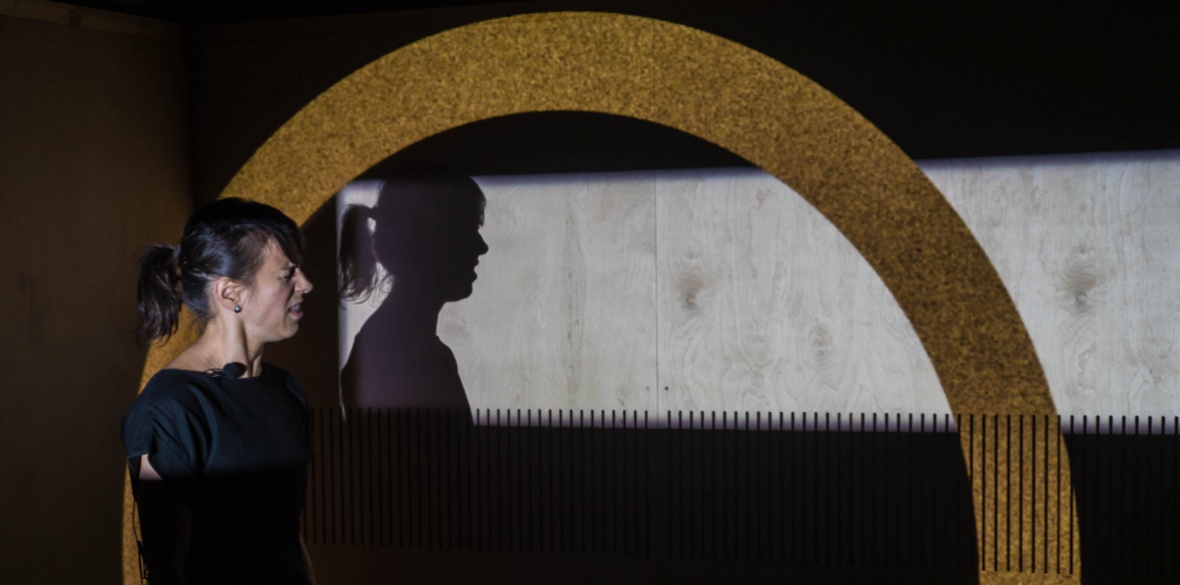This is the last article you can read this month
You can read more article this month
You can read more articles this month
Sorry your limit is up for this month
Reset on:
Please help support the Morning Star by subscribing here
What drew you to tackling the issue of nuclear weapons in your latest show?
Nuclear weapons affect all our lives but they are not part of the public conversation and we wanted to tell a human story that made people think and feel in new ways.
The impact of nuclear weapons feels so huge, it's difficult to think about and even harder to talk about. The effects of a nuclear attack work on scales of time and space way beyond anyone's everyday experience and we enjoyed the challenge of finding ways to communicate these ideas.
Theatre can make a story feel immediate and relatable even if its scale ranges from the subatomic to the intergalactic because theatre is the medium where human beings can communicate together at the same time in the same place.
Why now, in 2019?
The nuclear threat is one of several existential crises. The migrant crisis, the climate crisis, the Brexit crisis — every day as individuals and as a society we are confronted by situations where there is no easy answer.
Sometimes the problem can appear so enormous that there seems to be no answer at all, or we can't face finding it, or the answer seems so unbearable that we choose to ignore it. Nuclear Future's story explores the impact one person can have on the world. It feels really important at the moment to remember that people can change the world we live in.
The level of discussion in the mainstream political sphere about nuclear weapons is often reduced to the question of “would you push the button?” How can we raise the level of political discourse around nuclear weapons?
All of Gameshow's projects explore social and political ideas and Nuclear Future is focused on human experience. “Push-button” politics is reductive partly because it is so far removed from the human impact of a nuclear explosion.
The late academic Roger Fisher's suggestion is that in order to push the button, the commander should have to rip open an aide's heart where the nuclear codes are stored in a capsule. In order to kill millions remotely, they must kill one up close.
Maybe every nuclear commander-in-chief should read that.
Our play is partly inspired by Jonathan Schell's book The Fate of the Earth, which includes an impossible eye-witness account from the epicentre of a nuclear attack on a modern city.
His book also talks powerfully about our impact on the future and that's central to our show. The legacy of pushing the button is not just millions dead but a changed world for generations.
How are you translating the enormity of the topic onto the stage?
We wanted to create something on the human scale. Nuclear Future ranges from subatomic particles up to world-ending explosions but it's all told through one character, a nuclear scientist called Astrid.
We follow her interactions with her father and daughter and at work, where she speaks directly to the audience. This direct relationship between people can help us fit enormous ideas about space and time on to the stage.
Our team has created sound and video designs that plunge us into Astrid's world, helping us bring audiences closer to the human experience of nuclear weapons.
Threads had an enormous impact on the public's understanding of the horrific reality of nuclear weapons when it was shown on BBC2 in 1984. What role do the arts have in highlighting the horror of nuclear weapons?
Telling a story is a particularly useful way to explore the topic of nuclear weapons. All the science in Nuclear Future is real but the characters are fictional.
Through storytelling, the audience can safely imagine themselves in situations where they would never want to find themselves in reality. Threads powerfully uses a documentary style but it's the fictional characters that draw us into the story.
In Nuclear Future we borrow Schell's idea that the arts and our imagination can save humanity. The effects of nuclear weapons are so horrific that it's easier to avoid thinking about them but through the arts we can imagine events that we should never experience and hope to escape living through them in the future.
It's a story that anyone can relate to but takes the audience to some unexpected places, about how one person's actions can change the world. And it's about family and the future.
We are inspired in part by Threads but wanted to find a different way to talk about nuclear weapons that has more hope for our future.
Nuclear future plays Camden People's Theatre in London on October 18 and 19, box office: cptheatre.co.uk and then tours nationally until October 29, details: gameshow.org.uk












